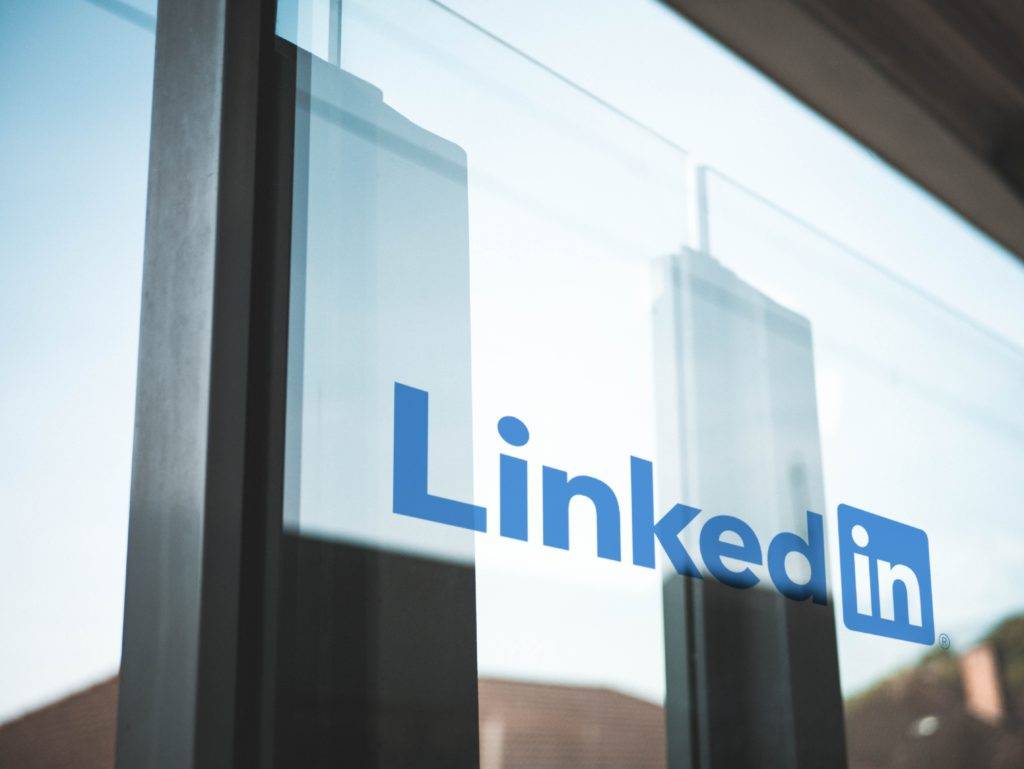Some words are naturally more compelling than others. Using persuasive words can prompt a buyer to action, advance the sales conversation, and win more deals.
I often tell my colleagues, "Words matter; choose them wisely." After all, a word that means one thing to me might mean something entirely different to someone else. And some words inspire action while others are disregarded or ignored entirely. As sellers and marketers, we use words to capture attention— what are the best persuasive words to get an email click or cause a buyer to answer an email?
A couple of months ago I decided to start paying closer attention to the ads and subject lines which drew me in and caused me to take action. I started keeping a mental record as a few trends began to emerge based on the things that prompted me to click or hit "reply."
First and foremost, I tend to click on things that speak to a current need, which makes sense— the lesson here is to make sure your message addresses a NEED.
Next, I tend to click on things I’m generally interested in, which again, makes sense. Lesson #2: make your message about the READER— tailor your communications to the topic they care about vs. a general message.
However, the other major theme that stood out to me was the language used to get me to act. Lesson #3: Words matter; choose them wisely. But not just any words...PERSUASIVE words.
Defining "persuasive"
By definition, "persuasive" means "to get someone to believe something through reasoning or the use of temptation." Persuasive words can allude to scarcity or generate excitement. Or perhaps you want to communicate exclusivity or create a perception about your product's quality.
If you think about it, marketing messages are designed to sell. But a common mistake is your message has to do all the selling.
When mapping out your marketing emails or your sales cadences, your job is to advance the buyer to the next action— get them to click, get them to reply, to call, to register— you get the idea. The goal is ACTION.
Using persuasive words can prompt a buyer to action. If marketers can use persuasive words to their advantage, salespeople can, too. With that in mind, I put together a list of seven persuasive words and how you can apply them in your sales efforts.
7 Persuasive words to use in sales
1. Because
Growing up we all probably heard some version of the phrase, “because I said so.” In most of those instances, the impact came from the authority of the speaker. However, research shows using the word “because” is powerful.
A study run by Ellen Langer showed just how powerful simply offering a reason can be by having people try to cut in line to use a Xerox (copy) machine. The researchers had people use three different, specifically worded requests to break in line:
- “Excuse me, I have 5 pages. May I use the Xerox machine?” The result? 60% compliance.
- “Excuse me, I have 5 pages. May I use the Xerox machine, because I have to make copies?” The result? 93% compliance.
- “Excuse me, I have 5 pages. May I use the Xerox machine, because I’m in a rush?” The result? 94% compliance.
The surprising thing here is that when someone offered a reason for needing to cut in line, they saw a 33% increase in compliance with the request. On top of that, the more compelling reason of “being in a rush” only gave a 1% increase. What this seems to show is by simply offering a reason, really any reason, you’re more likely to convince someone. My summation is people appreciate context.
What this means for sellers: instead of simply telling someone about a feature, give a reason for its existence using “because.” For example, at Qwilr, analytics for proposals is a top feature of ours. So, we might say, “We offer in-depth analytics because they allow you insight into a prospect’s mindset you may not have access to otherwise.”
2. New
As humans, we tend to take an interest in new things. The same is true in B2B selling. Whether it’s the novelty or the assumption that "new" is synonymous with “better,” we tend to respond positively to new things. Most of the time we think about newness as it relates to our offering— new features or services.
However, that’s just one way to think about something being new. You could also be offering new technology, a new approach or process, or a new (and better!) outcome, all of which are new to your buyer and equally exciting. As a practical application, try differentiating your buyer's current reality from their potential new reality.
Think creatively and be sure you’re considering all the different angles you could take on something being “new.”
3. You
If you watch enough HGTV, you’ll quickly identify a clever tactic used by real estate agents. When showing a prospective buyer a property, they refer to the home as if the person has already bought it. For example, they may say “check out your kitchen.” (or even better: "check out your new kitchen." 😉)
It’s a relatively small thing, but it accomplishes two things. First, on a very basic level, it personalizes the experience for that person. Second, it potentially helps the prospective buyer envision themselves in that specific property, which can be a very powerful motivator.
You too should be doing everything possible to personalize the sales process for your prospects. Also, try to set up scenarios in which they can envision themselves using your product first-hand.
4. Easy
Over the past few years, we’ve seen a huge focus on the customer experience — making decisions easy and the purchasing process simple for your prospect. In fact, research by Harvard Business Review (HBR) found companies who do the best job of making their features and benefits easy to understand have better sales conversion rates. How can you make your sales process easier for your buyer? HBR suggests the following:
- Help buyers evaluate their choices. From the 2021 Buyer Experience Study, 2 out of 3 buyers want to control the options they're purchasing and see the impact on pricing. An interactive pricing presentation empowers your buyer while maintaining price control. Shameless plug: Qwilr has many new and exciting options to choose from; schedule a demo to learn more.
- Help buyers to fee confident about their choice. Customer testimonials and G2 reviews go a long way in reducing purchasing anxiety. In fact, 42% of buyers are influenced by customer reviews. You likely have glowing feedback from similar organizations who have purchased your product— leverage them!
- Simplify the purchasing process. The buying process isn't the same as five years ago. Buyers are now more digitally saavy, have more responsibilities, and budgets are tight, especially as we emerge from a lengthy pandemic. Your sales process needs to adjust appropriately, incorporating buyer conveniences and eliminating time-consuming, unproductive pieces, like requiring a wet (ink) signature. If your sales materials aren't readable on mobile devices and your proposals aren't utilizing e-signatures, you are creating speed bumps in your sales process. Improving how you sell will make it easier for the buyer and accelerate the time to close.
The bottom line is people look for easy processes, tasks, things, and decisions. (We like easy!) When you make your sales process easy, you're reassuring your prospect that they’ll be able to accomplish what they want with your product and that it won’t cause any headaches in the process.
5. Guarantee
How annoying is it when you book a flight, get to the airport, learn the aircraft is overbooked, and then get bumped from that flight? I think we all agree, an airline taking our reservation isn’t the only thing that matters, it’s keeping the reservation. Hence, our next persuasive word, "guarantee."
Assurance is a powerful thing, and using the word “guarantee” is a great way to offer some sort of assurance. It’s why we see things like “money-back guarantee,” "error-free or it's free," "if you're not 100% satisfied, we'll make it right," and various other promises. However, just like a reservation, what really matters is making good on the promise. So, while a guarantee is powerful and reduces the risk for your buyer, only offer guarantees you can fulfill.
6. Limited
Scarcity is a powerful motivator. Often when we think there is less of something, the more urgency we feel to purchase. For example, if you go to the grocery store and see there’s only one of a certain item left, you’re probably more likely to purchase it than if the shelves were stocked full.
Scarcity, as it relates to quantity, is just one way to use “limited.” For example, touting a “limited supply” is effective if you're selling widgets, but for people in software or selling a service, it doesn't make sense. However, using "limited" in relation to time can be highly impactful regardless of what you're selling. For example, you might mention you have a “limited-time offer” that expires on a specific date, to compel your buyer to take action sooner rather than later.
When employed properly, leveraging "limited" can add a layer of urgency to the sales process, to help you close more deals and close them faster. Both of which are important to your overall sales success.
7. Free
If you’ve ever wondered why something free is so enticing, think about this: “free” is essentially a no-risk proposition. It doesn’t require anything of you. So, if it’s bad, no problem, there is no financial investment. It’s almost pure upside.
When considering it from that point of view, it becomes a lot more understandable why it’s easy to draw people in using “free.” In sales, you can basically put “free” in front of most things (free trial, free consultation, free report, etc.) to prompt action.
"Free" however, doesn't come without a cost. "Free" likely entails giving up personal information— a name, email, phone number, etc. So, even though something is offered for free, make sure you're still communicating the value. If a prospect does not view the free offer as something that they will potentially get some benefit from, then they will pass, every time.
Similarly, if you're giving your buyer an extra service or feature for free as an incentive to sign, make sure you're communicating the value, so they can monetize the added bonus and appreciate your offer.
Moving forward
In sales, words are tools. Words help you express ideas to prospects, communicate product value, and differentiate your brand. Persuasive words also prompt action and close deals. The plain and simple fact is some words are more persuasive than others, but use them with caution. For any claim or promise you make, be sure you’re able to deliver on it otherwise you'll lose credibility and even the most persuasive words won't help you. Ultimately, the most important persuasion tool you have in your entire arsenal is integrity. (Zig Ziglar)
About the author

Brendan Connaughton|Head of Growth Marketing
Brendan heads up growth marketing and demand generation at Qwilr, overseeing performance marketing, SEO, and lifecycle initiatives. Brendan has been instrumental in developing go-to-market functions for a number of high-growth startups and challenger brands.


